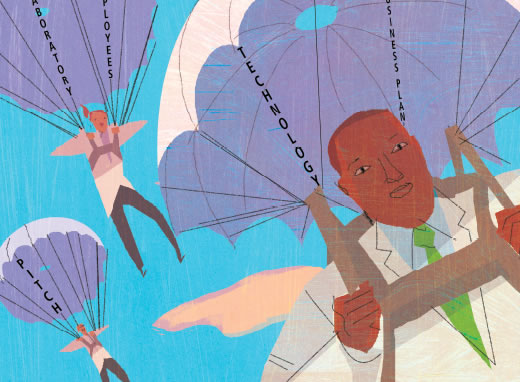Are you smart enough to know that you don't know everything?
If you want to take a product to market that you have spent years developing, you better check your ego at the door, says one venture capitalist who recently helped coach Emory medical school faculty.
"Venture capitalists want to know whether you are coachable," says Donovan Moxey. "You should be smart enough to know that you don't know everything."
Moxey, who founded LIPSinc, a 3D animation software company in North Carolina, knew that he didn't know much back in 1998 when he was developing his software. He turned to FastTrac Tech, a course offered by the Council for Entrepreneurial Development (CED) to stimulate high-tech companies in the Greater Research Triangle area. Moxey completed the course in August of that year, and by October he had raised $500,000. By February 1999, he had closed in on $1.3 million in first-round funding.
Today he sits on the board of CED and shares his experiences with other budding entrepreneurs, like the 22 from Emory, Georgia Tech, and the University of Georgia who were taking the course this past spring on the Emory campus. The six-week FastTrac was sponsored by Emory's Office of Technology Transfer, which helps shepherd faculty inventions from the lab bench to the hands of a commercial partner. In addition to Moxey, the group also heard from four other CEOs, three COOs, an executive recruiter, a patent attorney, and a venture capitalist.
"Several Emory faculty members have had success starting their own companies, and one of the goals of the program is to help make that group larger," says Todd Sherer, director of the Office of Technology Transfer. "Another is to let aspiring entrepreneurs know more about how start-ups work. We want them to be prepared for the process of working with business leaders and investors."
Many doctors and scientists have great ideas, Sherer says, but they still need investors, patent protection, and eventually the ability to pay employees. A scientist who is comfortable running a laboratory or preparing a grant application may still find the worlds of corporate finance and venture capital daunting.
And finding funding in today's depressed economy can be especially trying.

